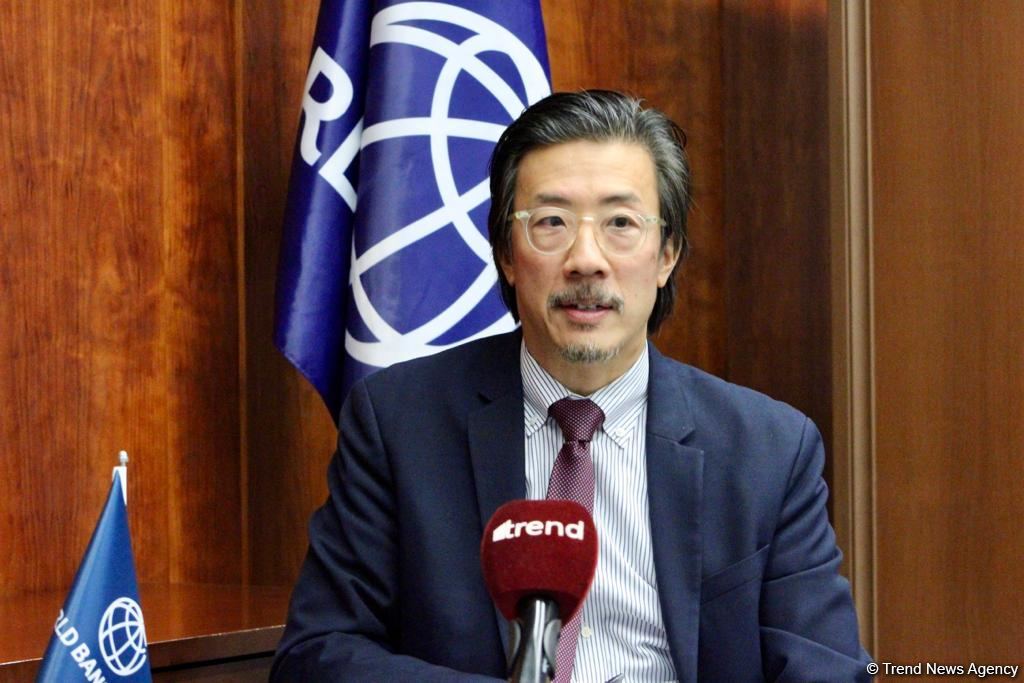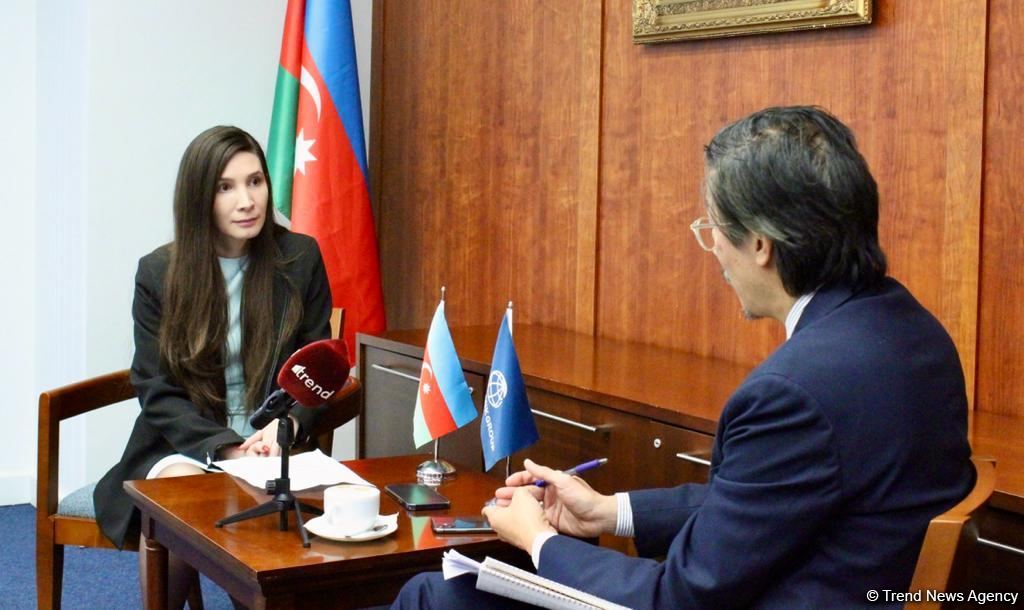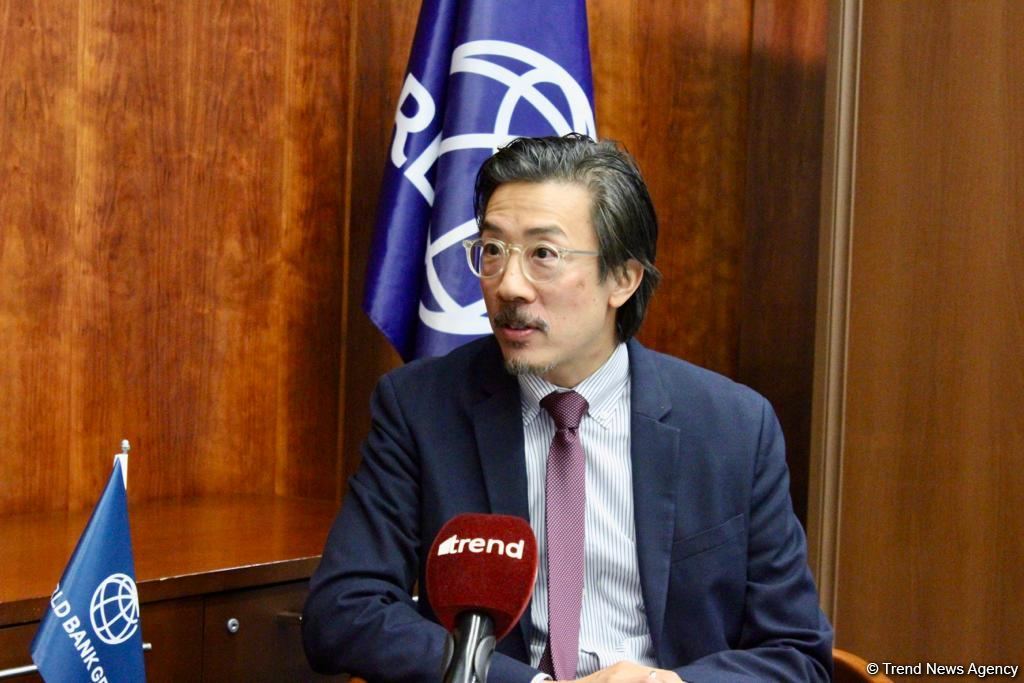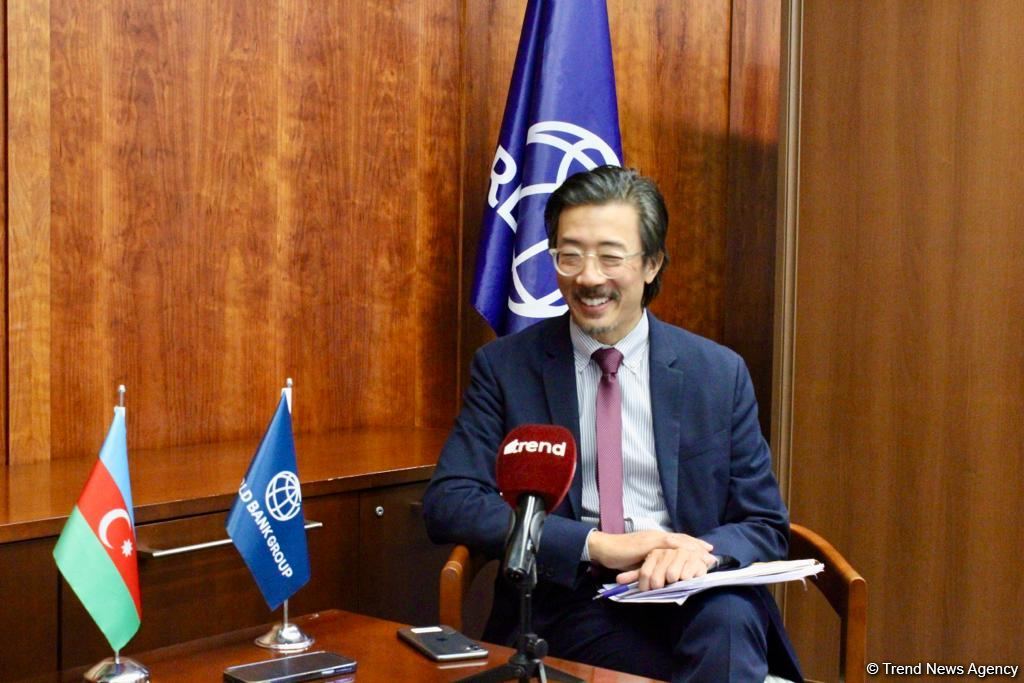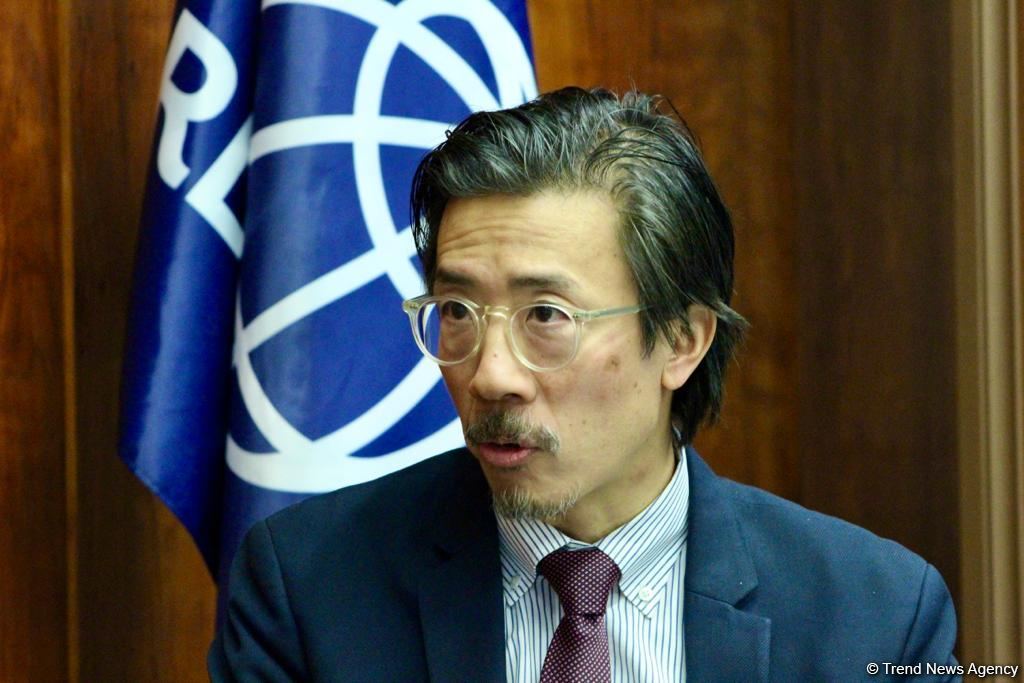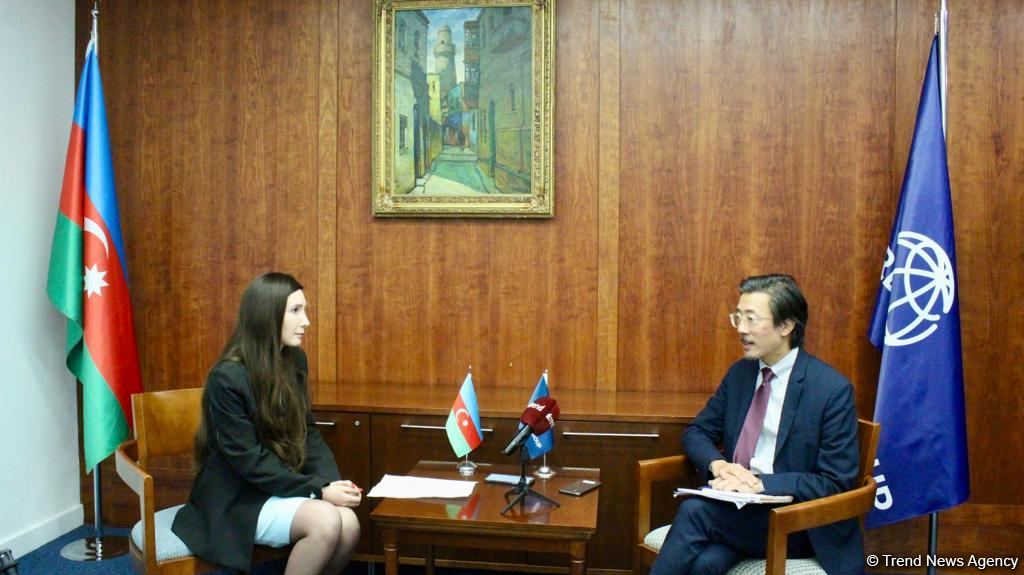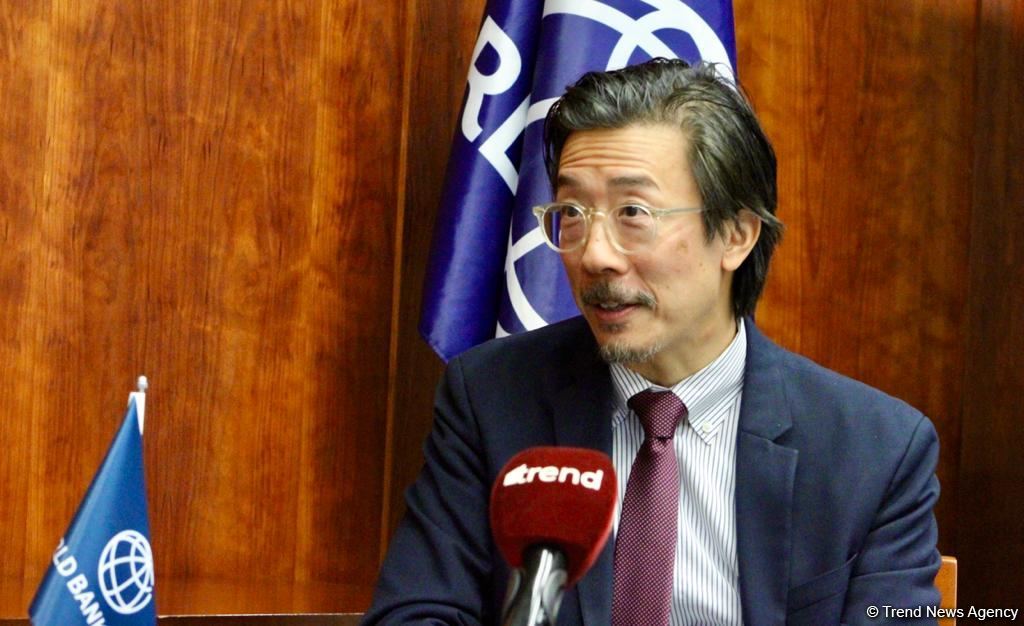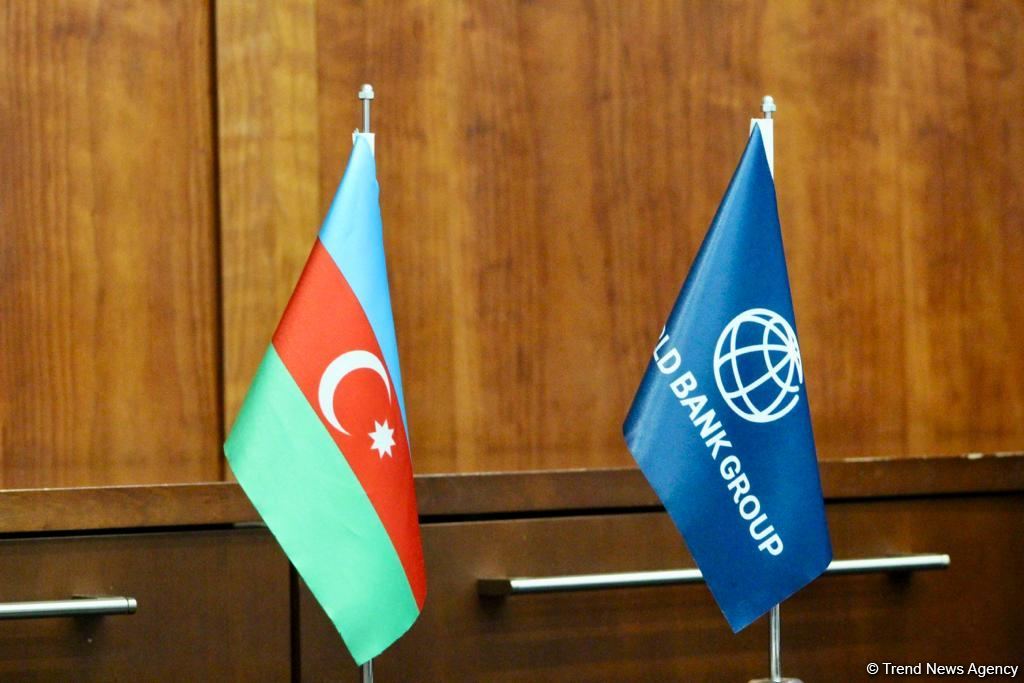BAKU, Azerbaijan, October 19. The World Bank is ready to work with Azerbaijan’s newly-created Water Reserves Agency, Winston Yu, Water Practice Manager for the Europe and Central Asia Region at the World Bank, said in an exclusive interview with Trend.
“I'm delighted to see the attention being given by the government to this very important topic of water. I think it represents a huge opportunity for the government to think about how they want to better regulate the resource and how to provide better services to its people, not only households, common citizens in Baku and other cities, but also farmers who receive irrigation services,” he said.
The Azerbaijan Water Reserves Agency was established in March 2023 by President of Azerbaijan Ilham Aliyev’s order on improvement of water resources management.
The Agency has been set up on the basis of the Emergency Ministry’s State Water Reserves Agency in order to use water resources effectively and improve irrigation practices. The assets of national water and sanitation operator Azersu and Azerbaijan Melioration and Water Management joint-stock companies has been handed over to the newly-established Azerbaijan Water Reserves Agency.
Yu thinks it remains to be seen how this new agency will evolve, grow and take on new responsibilities and new roles.
“I think it represents a huge opportunity. Households, businesses and farmers need good services. And I think this is a good opportunity now to look at the roles and financial sustainability of both water and sanitation and irrigation services. The World Bank is a global institution, we have almost 300 professionals working in the water sector. So that means that we know many stories and experiences pretty similar to Azerbaijan’s. The challenges here are not very different than the challenges in Vietnam or countries in Africa and South Asia, and even in the US. I personally come from California, where we face droughts. I think one of the main tasks for the World Bank is to help share that global knowledge. This new institution, as it moves forward, can be staffed properly, they can have the right policies in place, have the right incentives in place. I am really hoping that we can be a good partner for the government and share those ideas and those experiences,” said the WB water practice manager.
He pointed out that the World Bank is happy to develop guidelines for the new agency if the Azerbaijani government asks.
“We have an ongoing technical assistance activity, within which we are undertaking a large number of analytical studies to dig a bit deeper to help the government figure out what are the priorities. As an example, we want to help the government think through the financial sustainability of this new agency, and that requires some homework on budgeting, subsidies, tariffs. Reviewing all of that, we hope we will begin to lay out a plan for the agency moving forward. But it will be the government to decide whether they want us to support them on that and be partners in this journey of this new agency,” added Winston Yu.
He went on to add that the work on creating a new water management model in Azerbaijan comprises along two streams.
“The first is looking at the water supply and wastewater sector and the other is the irrigation for farmers’ sector. In the water supply work, what we're looking at is undertaking several studies, one of which is to look at subsidies and tariffs and the whole financial arrangements. Another sub-study is to look at services, particularly, in smaller cities and rural areas where there is less concentration of people. That presents its own unique set of challenges. On the irrigation side, what we are trying to do is to develop tools that the government can use to benchmark irrigation performance. How do you know how well an irrigation system is performing? Using satellite technologies and all kinds of new modeling tools we can develop rather simple tools that the government can utilize to figure out where do we need improvements in performance, where do we need more investment and etc. These are some of the activities that we are undertaking under the current technical assistance,” said the water practice manager.
Yu noted that every country, every city needs to diversify sources, but one also needs to be mindful that there are enormous opportunities for improving efficiency.
“Anytime you have losses in your networks, it translates to losses of revenue, energy, public effort. In my view, the priority is to first improve the existing system. Many countries now are reusing wastewater, and feeding it back into the system. I think those are all very good ideas. The technologies have advanced to the point where I believe in the future the re-use of wastewater will be a norm,” he said.
As for the institutional reforms in the water sector, Yu said first of all, he hopes that the government requests the World Bank’s help and sees that it has some value to bring to the conversation.
“If the government requests help, the first thing I would share with them is the experiences in other countries. I would also share with them that this is a long-term effort and this requires enormous investment, not only in infrastructure, but also investment in people and investment in institutions. We have to think long term here. Presumably you want to leave a water supply system for your children and for their children, so that they can always have clean drinking water. Same with farmers. And that process takes quite a bit of time. There needs to be political commitment, and really genuine investment in people who will be running these systems. I think that's probably the most important thing. We have a very famous principle at the World Bank which reads that we don't want to just fix the pipes, we want to fix the institutions that fix the pipes. You can fix pipes easily, but you need to invest in people and the public to help ensure that these pipes are always fixed and people are getting good services,” noted the WB water practice manager.
Yu thinks that in an environment where climate is changing, the public finance space is much more limited, and provision of services is becoming more and more expensive, financial sustainability is a key.
“I come originally from more of the engineering and technical background. I used to think that the solution was technical, desalinization, AI, blockchain and all these things, but I'm actually more and more convinced that it is about human capacity. It is really important that we get the financing correct, so that the systems are sustainable, whatever it gets built today, will last not only your lifetime, but also your children's lifetime and their children's lifetime. We need to get the incentives right. And I think leaning towards more performance-based budgeting, and performance-based incentives is really the way to go. Unless you have proper incentives in the system, it's not going to get priorities right. Secondly, we have to make sure we separate services from regulation, the two cannot be the same. Whoever is responsible for regulating should not be the same people who are also providing a service. You know, it's hard to go further in recommendations because I think it is still early days for this institution. You need to have a proper permitting system in place. You also need to have good data, every country needs to strengthen data monitoring, and that's probably going to be a responsibility of this new agency,” Yu said.
He believes it's encouraging that the government has made a conscious political decision about forming this new agency.
“For me, that's the first step. Now, this is where the hard work begins and it requires a lot of conversation. From the World Bank side, we want to give the government as much knowledge as possible, both the good experiences and maybe even more importantly, the bad experiences, because there's been a lot of bad experiences and we don't want Azerbaijan to go down a failed path. Technology will only save us to an extent. You still have to invest in people. There's a lot of innovative things, but there's also some basic things that still need to be done. One of the things we're doing under the technical assistance is to help share with the government different kinds of models used in more rural parts of the country, which are often very different than Baku. You can still use performance-based approaches in more rural parts of the country. It's a bit more challenging, but it's not impossible,” added Winston Yu.
The World Bank water practice manager noted that there's still room for more investment in the water sector.
“From the World Bank perspective, we're ready to help the government when requested. I want to thank the new agency, and also the technical people from Azersu and Amelioration Company who've been very kind and open armed with us in discussing the issues. This technical assistance is extremely important. We thank our donor, European Union, for providing it, because it really helps to discuss with the government some big issues, and what are the emerging ideas on how to make things better. Clearly, beyond just the losses and the need to fix this problem, there's a clear institutional gap that needs to be filled. I'm hoping that this new agency will fill that gap. Time will tell and we were ready to provide the government and this new agency with our thoughts and to share the experiences worldwide,” Winston Yu concluded.
---
Follow the author on X: @Lyaman_Zeyn

